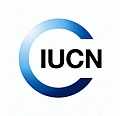environment jobs Est. in 1994. Delivering Environment Jobs for 30 years
This job listing is no longer active.
Please use our Environment Jobs Search to find current vacancies.
| Title | Marine Programme Officer |
| Posted |
|
|
|||||||||||||||||||||||||||
| Description |
The IUCN Global Marine and Polar Programme (GMPP) is based at IUCN Headquarters in Gland, Switzerland and provides vital links for the Union and its members to all the IUCN activities that deal with marine and polar issues, including projects and initiatives of the Regional Offices and the six IUCN Commissions. Its coordination role is above and beyond the policy development and thematic guidance that it undertakes to provide to assist governments, communities and NGOs alike. The Programme’s goal is to conserve marine biodiversity by promoting, influencing and catalysing sustainable uses and equitable sharing of resources while protecting marine ecosystems.
JOB DESCRIPTION
OVERALL RESPONSIBILITIES
This position will provide project management and technical support to GMPP’s programme of work on climate change, blue carbon and blue natural capital financing. The Programme Officer will report to the Manager, Oceans & Climate Change, IUCN GMPP and work with other associated project staff and consultants as needed. The work will be centred on two main components. However these could evolve or change according to needs and preferences. The two main components are as follows: 1. Blue Natural Capital (approx. 65%) Contribute towards the development and management of the BNC Financing Facility, including: • Assist in setting up a new technical assistance financing facility, the aim of which is to develop a pipeline of bankable projects centred on coastal ecosystem conservation and climate change adaptation • Identify internal processes and controls required to build and develop the internal structure of this facility and drafting related documents, including the development of BNC standards, positive impact framework and risk assessment criteria for environmental, social and gender related topics for adoption by the BNCFF • Develop Terms of Reference for the relevant facility committees • Aid the marketing, communications and stakeholder engagement activities of the new facility, including the production of necessary documents and workshop organisation • Support the project selection process, including initial screen of projects proposed • Identify suitable partners for the facility and support the set-up of a potential new investment fund for BNC projects • Researching, writing and publishing reports on the conservation of coastal blue carbon ecosystems, their role in climate change mitigation and adaptation, and policies and issues relating to their long-term sustainable financing (e.g. conservation finance, impact investment) 2. Technical support to mangrove related projects and products (approx. 20%) • Contribute towards the development of specific knowledge products: Effectiveness study on mangrove investments as well as development of best practice compendium • Support upcoming training and expert workshop as requested • Contribute towards communication efforts throughout project duration 3. Technical and communications support to other climate-related projects and initiatives (15%) • Provide input, edits, corrections and ideas for climate change-related outputs, publications, position papers, GMPP’s website and outreach products as required. REQUIREMENTS
APPLICATIONS
Applicants are requested to apply online through the HR Management System, by opening the vacancy announcement and pressing the "Apply" button. Applicants will be asked to create an account and submit their profile information. Applications will not be accepted after the closing date. The vacancy closes at midnight, Swiss time (GMT+1 / GMT+2 during Daylight Saving Time, DST). Please note that only selected applicants will be personally contacted for interviews. Other job opportunities are published in the IUCN website: http://www.iucn.org/involved/jobs/ About IUCN |
